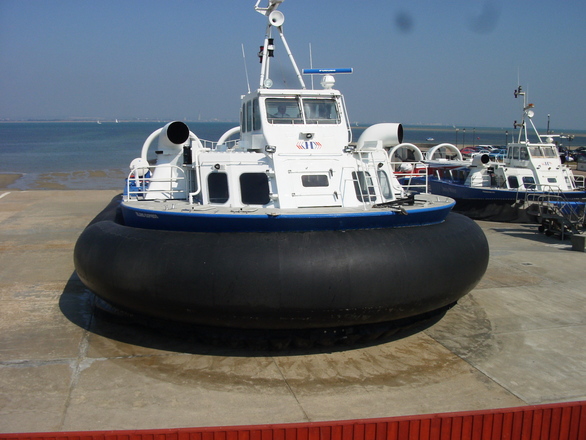

Almost every company that accumulates and amasses patents eventually becomes a software patents bully. Weaponisation of patents is like an insurance plan, a safety net or a Plan B for times when the company is struggling. Look at Apple, Microsoft and more recently Facebook and IBM. EMC isn't doing particularly well and as yesterday's and today's news helps remind us [1, 2, 3, 4, 5], the company now uses patents to sue rivals. As The Register summarised it, we speak about:
Patent 6,915,475 – EMC dropped it from the suit. Patent 8,375,187 – District court summarily ruled against EMC. Patent 7,434,015 – District court found Pure did infringe aspects of it; jury trial said patent was valid, and awarded damages. Patent 6,904,556 – Jury trial ruled Pure did not infringe. Patent 7,373,464 – Jury trial ruled Pure did not infringe.
"EMC will increasingly struggle against Free software and other disruptive strands of technology, so it will resort to more patent aggression for revenue."Apple should join the fight against software patents rather than use them against Linux for lawyers' benefit. But Apple is too stubborn and too arrogant to admit its error. Based on this new report from Reuters, Apple has just lost another patent case, this time in Germany (which is notorious for being lenient on software patenting compared to the rest of Europe).
We stumbled upon over a dozen articles about this in the afternoon, not because it’s important but because it’s Apple. Corporate media works like that. 18 articles about this outcome (within about 8 hours) showed up [1, 2, 3, 5, 6, 7, 8, 9, 10, 11, 12, 13, 14, 15, 16, 17, 18]. This can hopefully be discussed in the context of patent scope, just like the FBI case -- a case that demonstrates Apple and media fascination. If it wasn't involving Apple in any way, there would probably be not a single article about it. For-profit media writes about what can bring income/hits (profit as priority), hence it loves writing about Apple. Nevertheless, none of the articles we found questioned the existence of these patents, which are on streaming.
"Many people always wanted "hoverboards"; well, thanks to patents they may have to wait forever, or simply find them priced way out of reach."Apple loves using the ITC to pressure companies it sues to just give up and pay up. This new article helps remind us of the role of embargoes in the market. Pieter Hintjens (former FFII President) put it sarcastically by saying: "Once again patents succeed in killing competition. Without patents, no-one will invent anything, right?"
Here is one article about it, from an opponent of patent trolls:
A patent complaint that Segway filed with the US International Trade Commission in 2014 has resulted in a wide-ranging order banning "personal transporters" that infringe some of its patents.
On Wednesday, the ITC issued a general exclusion order banning several types of the self-balancing devices, often called "hoverboards." The case could affect the whole market, since a general exclusion order is the commission's most powerful remedy and can affect even parties not involved in the investigation.
There's also a limited exclusion order issued directly against the products of several Chinese companies sued by Segway. Only one of those companies responded and fought the case at all, while the others were in default.
The US International Trade Commission (ITC) this week wrapped up a Section 337 patent infringement investigation initiated by Segway, and its decision is set to have a big impact on a market for self-balancing personal transports that has come back to life over the past year. In a twist, Ninebot – one of the Chinese companies named as a respondent in the original complaint – is now set to become the key beneficiary of the ruling in Segway’s favour.
"Is the EPO paying attention at all when a European company, Mercedes, becomes the victim of software patents?"Software patents are under severe pressure in the US right now. Some older articles from Bilski Blog speak of Section 101 rejections and give new examples of patents which are found invalid under that section. Here is the Vehicle Intelligence case which we recently wrote about quite a lot. They have taken on the giant, Mercedes-Benz, in an effort to extract money. "Vehicle Intelligence," Bilski Blog writes, "involved U.S. Patent 7,394,392, written by a patent attorney, on the use of expert systems to determine whether an equipment operator--e.g., the driver of a car--was impaired from intoxication, fatigue, physical disability, or other factors. [...] Under the Alice test, if the abstract idea is really this general, then using an expert system is "significantly more." An expert system is not a native component or functionality of a generic computer system, but a highly specific type of artificial intelligence--different in both design, architecture and application from other types of AI systems. And if the game of patent eligibility is played on the borderless field of analogy, it is easy to argue this claim is like the claim in Diamond v. Diehr, in that it involves continuously measuring a physical variable (screening the equipment operator here, measuring the temperature in the rubber mold in Diehr) and then performing a control action in response to the result (controlling operation of the equipment here, opening the rubber mold in Diehr). If Diehr was eligible so too is this."
Notice the role of the Alice test. Is the EPO paying attention at all when a European company, Mercedes, becomes the victim of software patents?
Based on this latest outline from Dennis Crouch, Alice isn't going to be challenged (at least in SCOTUS) any time soon. ⬆